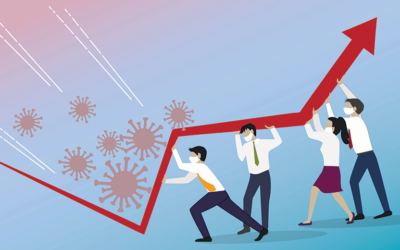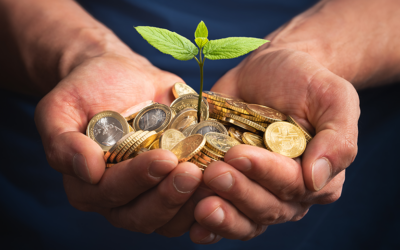We know a lot about stock market crashes, much more than we know about a public health catastrophe such as that brought about by the coronavirus Covid-19.
This is a blow to the world economy that has not happened since the Spanish ’flu pandemic of 1918-20. But the fact that market crashes happen with depressing regularity does not make it any easier to build an investment strategy to help us manoeuvre our way through the turmoil. We know there is an investment cycle, just as there is an economic cycle, but no cycle is quite the same.
So what can we say with some confidence?
As far as the world economy is concerned, we can be reasonably sure that there will be a recession akin to that of 2008. But we also know that this is being met with a massive fiscal and monetary boost that will be at least as big as the action then.
However the disruption this time is different. Now it is the real economy that has frozen and will have to be revived – then it was the financial system that was nearly destroyed and had to be rescued. But there are sufficient similarities to give us some feeling for the months ahead.
The starting point is that we can be confident there will eventually be a recovery. We have enough experience of cycles to know that. But we don’t know enough yet to be confident of its timing, strength or durability. We didn’t know, in the dark days of 2008, that this would be the beginning of the longest growth period for the US economy, or indeed the longest bull-run on record for most equity markets.
At some stage this summer the shape of the recovery will become clearer. The pandemic will recede and the harsh controls over economic activity will be lifted. There will of course be concerns of a recurrence but we will know much more about treatment and may even have an indication as to whether an effective vaccine is on the way. Gradually confidence will return. But the world economy will be changed in ways that we can only guess at now.
For example, some sectors that have been most severely hit may take years to recover. Travel and tourism account for more than 10% of the world economy. Will people fly as frequently in the future as they have in the past? Maybe not. Will there be a reversal of growth in global trade as companies seek to produce more locally? Probably yes.
These structural changes will affect investment – some companies will recover quickly as demand climbs back, while others will continue to struggle. Think of it as having several years of structural change compressed into six months.
There is a further new element: the rise in fiscal deficits and national debt. Just about every country in the world will have a larger debt in two years’ time than it has now, maybe much larger. It will be in the self-interest of governments to try to hold down the cost of servicing that debt, so we should expect interest rates to remain low for the foreseeable future. The economic argument that low rates are needed to support growth will be supported by the practical argument that politicians don’t like telling their electorates that they are going to have to pay more tax.
Translating all this into an investment strategy is not easy. Most investors will be sitting on large losses, and even those who are cash-rich will be chary. Equity markets in the UK and globally fell about 35%* from peak to the recent trough, and the decline has been particularly swift.
Unfortunately that does not necessarily mean they are good value. Most company earnings this year will take a huge hit. The standard valuation metric of the price/earnings ratio is of little help when many companies have no earnings, at least for this year. The rising tide of economic growth will not float all boats.
To put money into a market in these hair-raisingly uncertain times takes courage. But taking a very long view must for most investors be right. As Warren Buffett, the legendary chairman of Berkshire Hathaway, put it in 1987: ‘“We simply attempt to be fearful when others are greedy and to be greedy only when others are fearful.’
Last year he was fearful, building up a cash pile of $128bn. Watch out for signs of him turning greedy again by buying shares in distressed sectors, including airlines and banks.
Calling the bottom of a bear market is impossible. Getting it right is pure luck. But for those with cash, maybe it is better to be too early in buying back than being too late and missing a once-in-decade opportunity.
And to end on an optimistic note – the data shows clearly that over the very long term, stocks provide remarkably steady returns.
The 2019 Barclays Equity Gilt Study** shows that – and this is in nominal terms – £100 invested in equities in 1899 would be worth around £2.7 million at the end of 2018 – an annualised return of around 15.5%. Using the Bank of England’s inflation data, that is still a real return of 4.1% a year.
The same is true of US equities. The S&P Real Value index – dividends invested, adjusted for inflation – shows an impressively consistent 6.6% annual real return since 1871.
* The FTSE-100 Index fell 34.9% between 17 January and 23 March while the MSCI World Index fell by 34.1% between 19 February and 23 March
** Time in, not timing, the market counts Barclays Private Bank, 2019
Hamish McRae is a principal commentator for The Independent and The Independent on Sunday and associate editor of The Independent.







